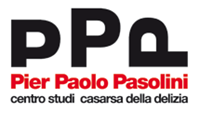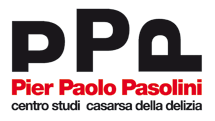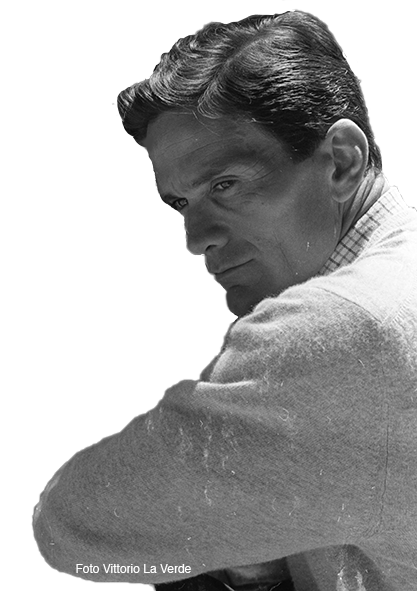17 JANUARY 1976
Convened by the Mayor of Casarsa, Giocchino Francescutto, the Commettee gathered for the first time on 17 January 1976 at the Civic Administration in otder to study and promote new initiative for the commemoration of the poet, writer and movie director Pier Paolo Pasolini.
People attended:
- Mr Francescutto Gioacchino, the Mayor of the city;
- Father Davide Maria Turoldo;
- Mr Zanzotto Andrea, professor, represented by his wife;
- Mr Zigaina Giuseppe, painter;
- Mr Valle Gino, architect;
- Mr Chiarcossi Graziella, professor;
- Mr Favret Angelo, city councillor;
- Mr Leonzio Rocco, city councillor;
- Mr Colussi Paolo, city councillor;
- Prof Luciano Erba, the editor Giulio Enaudi, prof Mario Gozzoni and prof Angelo Romano were absent but they communicated their support.
The Mayor of Casarsa summed up the votes expressed by the city council for the preservation of the work and the cultural message of the author. After this introduction and after Father David Maria Turoldo’s exhortation, the Municipal Administration proposed the creation of a promotional Committee from which every useful advice for the future programme could be drown.
These were the main purposes:
- Collection, cataloguing and preservation of Pasolini’s literary and cinematographic heritage.
- Creation of a Cultural Association reintroducing the “Academiuta di lenga furlana” founded by the poet.
The Administration believed that this program must be realized in Casarsa, the land where Pasolini had genuine and always vivid memories and where he came back after his death. The painter Zigaina agreed with the initiative promoted by the City Administration that could find a valid supporter in the Committee. Therefore, it was essential to start a prompt work of involvement with a program of concrete perspectives.
He introduced these working hypotheses:
- To create a foundation with socio- cultural purposes where Pasolini’s work could be guarded and studied, both under a philological and a moral profile. According to this plan they could promote incentives for the students who intend to undertake their thesis on Pasolini’s literature;
- To present an economic plan to the Regional Body in order to obtain the official recognition of the initiative;
- To organize the future relationships among the foundation, the Municipality, the District of Pordenone and the Province Friuli Venezia Giulia for economic and operating aims;
- To involve and to stimulate the interest of young people about Pasolini’s significance in contemporary literature;
- To add in the Committee also Nico Naldini , the poet’s cousin and his close friend.
Also Mrs Zanzotto agreed with the purpose of creating a foundation that could support the knowledge of Pasolini not only as a writer and a poet, but also as a movie director. Especially it could enlighten the Friulian origins, since his most spontaneous (though less known) literary production is written in Friulian language. So, first of all, it is important to create an archive of the literary and cinematographic works and next to this collection to develop relationships and links with schools as well as the most appropriate cultural manifestations. Mrs Zanotto suggested to add Mr Elio Bartolini and Mr Amedeo Giacomini in the Committee, but Father David Maria Turoldo believed that it was more important to concentrate on more realistic and imminent things, considering all the problems to overcome and the long waiting time required to create a foundation.
He thought to establish an archive-library and to collect published and unpublished works of Pasolini. According to this point of view the Committee thought to consult a very close friend of Pasolini, Mr Ciceri, who could offer a lot of information as well as useful and interesting material. It is necessary to bring back together, photocopy and organize all the material owned by the poet’s friends and relatives from Rome to Casarsa.
Around this concrete focus, innovative cultural initiatives will be achieved in order to value the philological part of Pasolini’s literature, his poetry and above all his Friulian soul. That’s why the Committee established a direct connection with some Friulian Cultural Associations and shared with the Mayor the ambition to make Casarsa the natural location for this foundation, at least in the first part of its creation. Mr Valle agreed with the proposal to establish a foundation with the aims outlined during the discussion. However, providing the institution with a proper institutional branch as well as a proper archive is a key precondition. At the moment the District of Casarsa cannot offer appropriate buildings, so it is necessary to think to a wider perspective.



